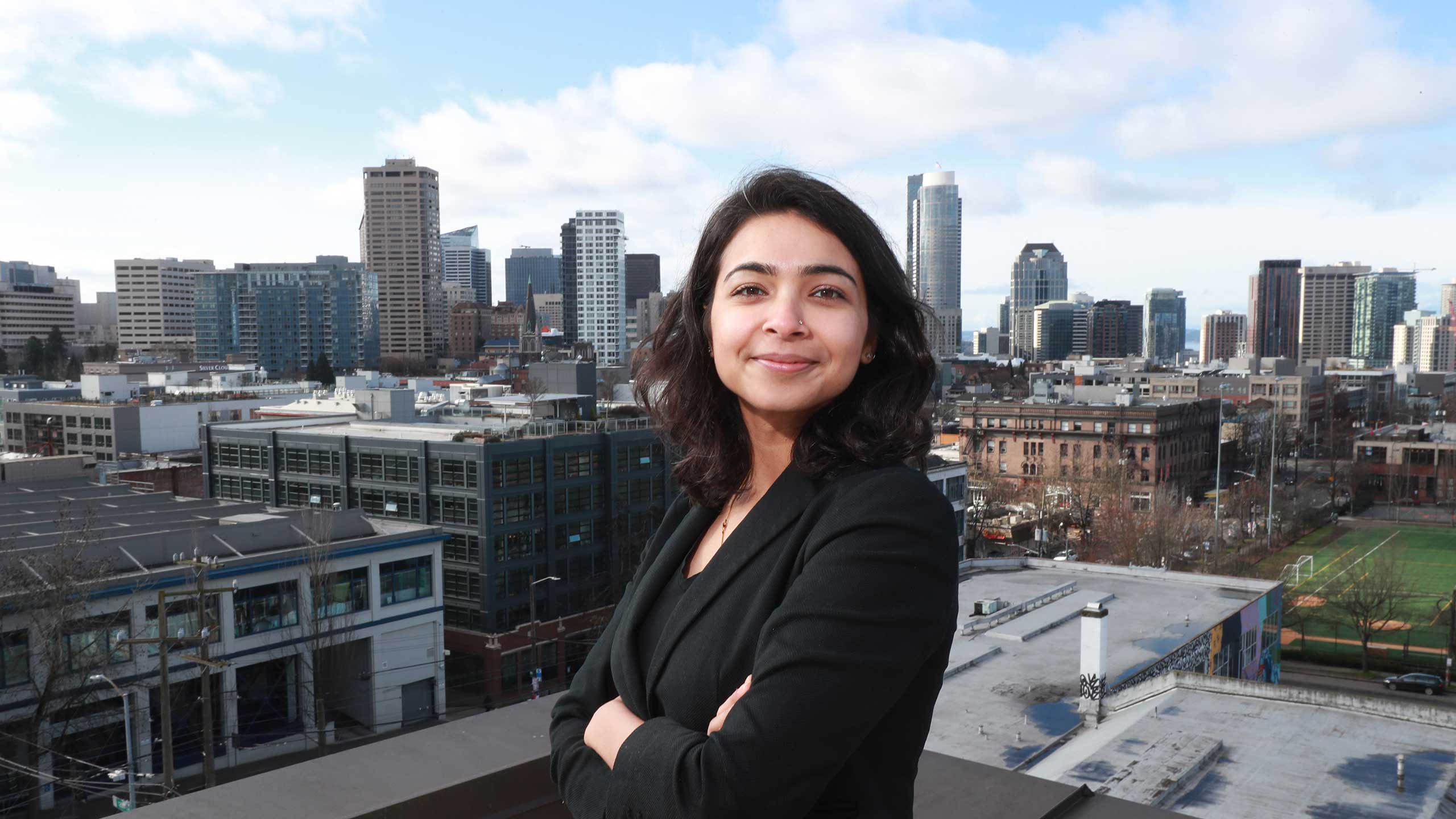
Aakanksha Sinha
Serving up Social Justice

Growing up in India, Aakanksha Sinha, PhD, was surrounded by family members who reinforced the importance of making the world a better place. Since joining Seattle University as an assistant professor of social work and becoming a local business owner, Sinha is ambitiously accomplishing just that.
“I make sure any project I take on, any grant I’m applying for and any paper I’m writing is entrenched in the community so any creation of knowledge impacts the group that I’m working with,” Sinha says.
“I’ve found in many schools, there is a mismatch between the social work department’s mission in social justice versus the university’s mission,” Sinha continues. Seattle U is different, she notes, and cites the presence of the Center for Community Engagement on campus as an example of how it drives awareness “to the focus on social justice that my department and Seattle U are both committed to.”
Much of Sinha’s research focuses on access to basic needs, including domestic and global food insecurity. Each undergraduate and graduate course she teaches features a substantial service-learning component. “I don’t mean they just go and volunteer for a couple of hours,” she notes. “In the classroom, we determine how we can apply the knowledge and skills students have toward creating a tool that helps the community.”
One example includes a graduate program evaluation class that helped empower low-income residents within Capitol Hill Housing (CHH).
“It started with students conducting interviews and collecting data from the residents,” Sinha explains. This led to a pilot study, a report on its findings and a presentation for CHH, who then hired Sinha as a consultant to review all 46 of their buildings across Seattle, work she did alongside a current social work graduate student and an alum of the social work master’s program.
“We ended up conducting a two-day workshop with residents who shared issues around stigma, discrimination and not being valued as human beings,” she says. This process led to the establishment of the Resident Social Council, where residents will work on ideas to help their own community and develop a sense of well-being.
Outside of Seattle U, Sinha and her husband, Uttam Mukherjee, got their start in Seattle’s food scene by making and selling kathi rolls—a traditional Indian street food—at South Lake Union’s market in 2018 before opening their local restaurant Spice Waala in 2019.
Sinha says street food “equalizes the playing field for everyone—it shows the diversity in the society and brings everyone together. There isn’t a hierarchy in the food, so it isn’t that somebody who’s very rich can buy better food or someone who’s very poor will get lower quality food. Everybody is given the same food and treatment.”
The counter-service location on 15th Avenue East is based on a social impact business model, which integrates social work and social justice within a profitable framework. Sinha paraphrases economist, microfinancing pioneer and Nobel Peace Prize laureate Muhammad Yunus: “Why does business need to be completely separate from social work and why can’t we bring the two together?”
Spice Waala has five employees, all paid above minimum wage and with profit shares in the business. “If they’re investing their time and helping us grow, then they also get a part of the business,” Sinha says.
Spice Waala also supports nonprofits by fulfilling requests based on specific needs, ranging from food to monetary donations. This year, Sinha says her objective is to create “long lasting relationships with three or four organizations so that we can have more of a sustainable model for impact.”